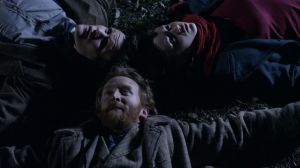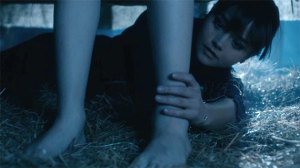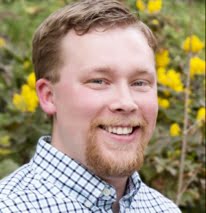It is almost embarrassing how long it has been since my last blog post. Last residency, I did a decent job of recapturing each day the morning after. I clearly didn’t do that this time so this post will be longer than most. Hopefully, a future Seton Hill Master of Fine Arts candidate (MFA) in Writing Popular Fiction (WPF) will find this post before their first residency and find something of value in it. If not, well, at least this serves as a form of journal for myself.
This was a hard residency for me to attend in many ways. It’s my second to last one as a student in the MFA program. In June, the experience will be completely different because I will be reading from my novel on one of the nights and then graduating on the final day. While I knew many of the students that had graduated in previous terms, it hit harder at this graduation because those graduating were people who started just before me and the ones I knew the best. I had actually applied to the program to start with their group, but the seats were already full and I was asked to wait until the following term to start. It was hard to decide which thesis readings to attend each night because I had spent so much time around these people and wanted to listen to all of them. They are truly remarkable writers.
At the beginning of every residency, Dr. Al Wendland, the program director, hosts a opening reception and sets the theme for the residency. The theme this time around was how to bring more emotion into your writing and in your genre. I felt this was a perfect focus and would work well with my teaching module later in the week.
The first morning of every residency, we are split into mixed genre groups to discuss the common reading for that term. I started the program with Mystery and we read The Snowman by Jo Nesbo. Next, we read The Hunger Games for our Young Adult selection. We moved on to Romance (although it ended up being a poor excuse for a YA Romance) and read Fated. Last June was Science Fiction and Ready Player One (very fun read for those that grew up in the 80s and appreciate the pop culture references). This semester was the Horror genre and we read NOS4A2 by Joe Hill. I liked the paranormal aspects of the novel and the unique powers with a cost system he created, particularly with Vic. But I had to skip a lot of pages when other characters came on the page because I do not like reading about children in harm or people thinking about doing horrible things to children. I get that a lot of the Horror genre is about the loss of innocence, but I can’t do stories involving harming children. Regardless, we had an interesting discussion about the Horror genre as a whole and the book individually. In the end, I was more set than ever to pull pieces from my thesis novel so that it would stay as Dark Fantasy rather than Horror. Don’t get me wrong, I’m not saying I have anything against the Horror genre. I certainly believe that good stories have many elements of Horror within them to help raise the stakes for the characters. I just can’t bring myself to embrace certain subjects and write about them to be in the Horror market. Just a personal thing. My mentor writes Horror. I requested him partly because I expect him to be able to help me see the line between Dark Fantasy and Horror so I can stay on the side where I am comfortable.
As this was my fifth residency, I was required to take a session on reading my own work aloud as well as what is expected of us when we read from our thesis at the next and final residency. I’m glad I took the module last June on reading aloud because we had more time for reading our own work and getting feedback. This shorter session was more about how much time we should plan on reading from the novel in June so there is time to answer questions.
After lunch I attended the module on Planning and Plotting the Romance Series with Felicia Mason (Amazon Booklist). It was an amazing module. Being one of two guys in the entire class, I was a little nervous. But they all encouraged and praised us for venturing out and we got fat on chocolates and cookies. The best part of the module was the application. Rather than just lecturing to us about techniques used in plotting and planning a book series, we went through various stages of brainstorming the general series idea and then the process of coming up with the general idea for each book in the series.
Sunday started with the first session of writing critiques. It’s one of my favorite parts of residency. Your own work of 10 pages is critiqued on one of the days while you work with others in the program on theirs on the other days. I have been in some nasty workshop sessions before coming to Seton Hill. You don’t get that in this program. We are all there to learn and help each other grow as writers. Occasionally, someone will take the critiques hard. But they usually are able to see, soon afterwards, that they weren’t being attacked at a personal level and that their writing can improve with advice given in the session. Selfishly, these sessions also help me see how much I’ve learned in the technical aspects of writing and it is fun to submit the first 10 pages of a new idea to see how it is received as a concept for work after I finish the program.
I have an idea for a series, but I can’t decide if I want it to be a mystery or a romantic suspense series. In a past residency, I took a module on planning the mystery series. A common theme that worried me about my idea was that in a true mystery, nothing can happen in the story that isn’t directly related to the mystery. Including relationship scenes. I think my misconception of this stems from watching shows like Castle which gives us the human element of the story as well as the mystery. That is why I took the Planning and Plotting a Romance Series and the Cozy Mystery module so I could hopefully find where my series idea best fits. The Sunday module on Writing the Cozy Mystery by Barb Miller (Author website) was especially helpful if I want to turn it into a mystery series. I feel cozy mysteries are an avenue I could explorer because it isn’t required of the writer (and in many ways enforced) to put in lots of gore and sex into the mystery story. Now that I have kids, I have a hard time thinking about writing anything too graphic.
Sunday evening we met with out mentors to plan our the goals and deadlines for the oncoming semester. As this is my last semester in the program, I have to finish my thesis novel and have it edited and turned into Jon Sprunk (Author website) and Scott A. Johnson (Author website) by April 15! I’ve got some work to do. It’s really not that bad. Only two pages a day. At 25o words a page it’s only 500 a day. I already typed out well over that for this post alone. The problem is sitting down and getting the words to come. I’ve been struggling in that department for a while now. I keep getting ideas for other projects and not for my thesis. Focusing my time and energy on this thesis is going to be a challenge. I’ve planned out what needs to happen from this point in the novel until the end. I’m just having trouble finding that word to start off the next section. I’m tempted to skip this immediate scene in the novel and go write the end and then come back. But then I’m worried that I’ll get stuck there and jump again and never finish a scene. Oh, the problems of a writer 😉
This residency also marked a big milestone in the program. I had to teach for 45-50 minutes to a class of my fellow students and a faculty grader Monday morning. I was probably more nervous the night before as I made the preparation of the ballistics gel than when it was my turn to teach. The session went very well. Everyone seemed to have a good time hitting the ballistics gel to get a better understanding of what happens when their characters hit another person. I’ve made the gel before, but this time I put pork ribs on one side so they could hear and feel the difference when hitting the block on the gel side versus the rib side. Afterwards, they drafted a paragraph of action using what senses they experienced to bring new details to their writing. In my discussion with the faculty grader afterwards, we agreed that the only thing I really could do to improve the session would be to have them draft the paragraph first, then do the demonstrations, and then revise the paragraph afterwards. I’m just glad that the demonstration worked as well as it did and that I passed my teaching module. Again, a big milestone in the project. All that’s left is to turn in my completed thesis!
Honestly, after my teaching module, the rest of the residency was a blur. I didn’t care if my workshop piece flopped because my intent was to submit the first pages of an idea and see if it was interesting for readers or a complete dud. I took a lot of notes in Nicole Peeler’s (Author Website) finding an agent and writing query letters. I’m hoping that I feel more confident with my thesis novel when it is finished and inspired to send it out to agents. My workshop piece was Tuesday morning and did about as well as I expected, another idea to put on the shelf until this program is over. Afterwards, we had some sessions with our guest speaker Philip Palmer on Fiction Masterpieces and Truth in Fiction.
The final day of residency is always the fastest and not just because it’s shorter. The schedule is flipped a little with the final module in the morning and then workshops after lunch before graduation at 3:15. In the morning module, I attended Scott A. Johnson’s session on Rituals, Religions, and Magic in fiction. As I’m using all three in my thesis novel, I would have been pretty stupid to not attend that module.
I’m not ready for this program to be over in June. If I can just sell enough books to have the money to come out every June for the alumni In Your Write Mind conference and book signing that corresponds with the dates of residency, I’d be happy. The atmosphere in this program is powerful and energizing. And the connections and friendships we make are life long and life changing. I know I’m a stronger writer because of this program and I want to stay involved and give back as much as I can.
And with those words, my recap is done. I’m off to another week of my awesome day job (not being sarcastic here, it’s pretty sweet and the company is awesome) and hopefully finding the time each day to write my two pages!
To all that may read this, thank you for your time and may your own writing endeavors and dreams come to fruition.







